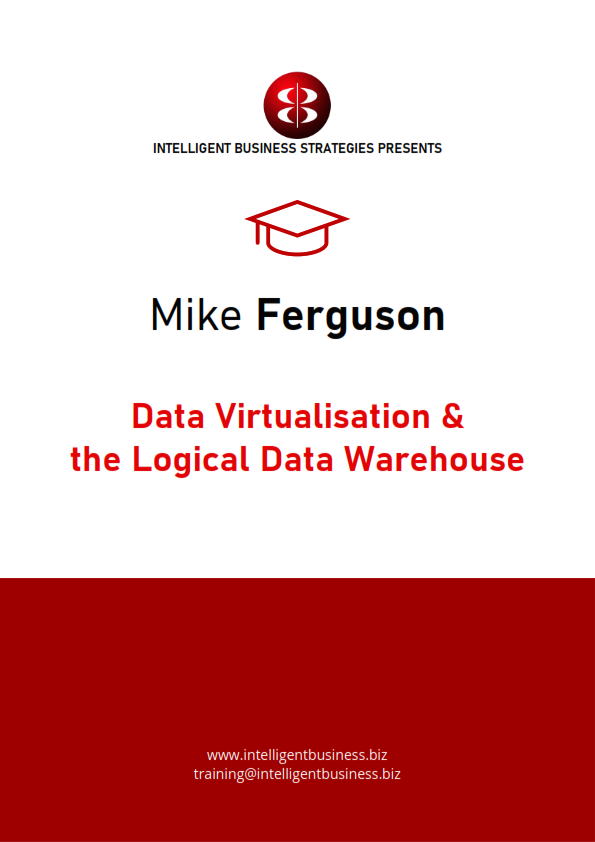
Featured Content

Data Catalogs: Governing & Provisioning Data in a Data Driven Enterprise (12 December 2024, Italy Livestream Training)

Data Catalogs – Governing & Provisioning Data in a Data Driven Enterprise (16 October 2024, Stockholm)

Data Warehouse Automation & Real-time Data – Reducing Time to Value in a Distributed Analytical Environment

Data Strategy: Building The Foundation of a Data-Driven Enterprise (13-14 November 2024, Italy Livestream Training)
Education
Data Virtualisation & the Logical Data Warehouse

Request information on running this seminar as an Onsite (can be given as virtual training)
Click here for a full brochure
INTRODUCTION
Many companies are now dealing with significant data complexity including cloud and on-premises transaction processing systems as well as multiple data stores in their analytical environment including traditional data warehouses, master data management systems, cloud storage, Hadoop and NoSQL data stores. In the area of analytics, many companies are processing and analysing new data to provide insights in addition to those coming from their data warehouses. In addition, Hadoop is being used to offload data warehouse staging areas and undertake scalable ETL processing to supply data into data warehouses. A key question with all of these applications and data stores, is how do you keep access to data simple and not overwhelm users? Also, how do you integrate new big data insights with existing insights coming from data warehouses? This class looks at how data virtualisation can be used to integrate data for both operational and analytical use. It looks at practical use cases for data virtualisation and at how to simplify access to Hadoop and non-Hadoop analytical systems by using data virtualisation to create a logical data warehouse. It shows how to design an architecture that allows business analysts and ‘citizen data scientists’ to leverage analytics in Spark, Hadoop, data warehouses and data marts from within self-service visual discovery tools without having to integrate all the data themselves.
OVERVIEW
As more and more data becomes available to people and applications inside the enterprise the challenge of integrating data is becoming more complex. Data is now distributed across multiple on-premises and cloud-based applications as well as new high value data becoming available in external data sources. This makes data harder to access and integrate. This 1-day seminar looks to address this issue by introducing Data Virtualisation and why this technology is now a key component of any information architecture. It discusses what Data Virtualisation is, how you can use this technology to simplify access to data, how it can be used to increase agility and reduce time to time value and how it can be used to create a logical data warehouse as well as information services.
AUDIENCE
Data Architects, DBAs, BI Professionals, Business Analysts, IT Managers.
LEARNING OBJECTIVES
After attending this seminar you should be able to understand what data virtualisation is, how it works, tools in the marketplace, how data virtualisation changes your data architecture and how it can simplify access to data.
MODULES
- Module 1: An Introduction to Data Virtualisation
- Module 2: Implementing Data Virtualisation
- Module 3: Popular Data Virtualisation Use Cases to Maximise Business Value
Click here for a full brochure






